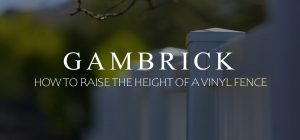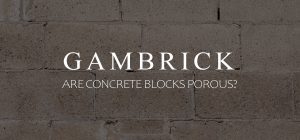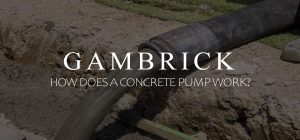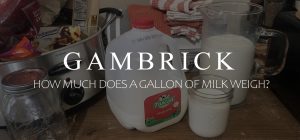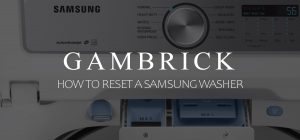How To Buy A House At 22
Are you looking for tips on how to buy a house at 22? If so, you’re in the right place to find a bunch of great home buying techniques that work for buyers of any age.
You may think the idea of buying a home at such a young age sounds crazy, but i can tell you firsthand that it’s not. Home ownership is actually a lot easier than you probably think no matter what age you are. And what better place is there to learn how to do it than from a builder. The biggest reason most people don’t buy a home until much later in life is because they don’t know how. We know and use just about every method there is to buy a home and we’re gonna share them all with you. Believe me, even if you know all the tips and tricks real estate investors use it’s still not an easy thing to do. But it’s something you can do if you work hard and manage your money right.
Learning how to save more money can help you in so many ways other than just buying a new home. You may be able to use some of these tips to stop living paycheck to paycheck, pay off your debt, save for your future, and a lot more. Learning to save money in real estate can help you in all sorts of other areas throughout your life.
There are so many ways to learn how to save money. Continue reading below to learn our best tips and tricks for buying a house so that you can save money and manage your money better ASAP.
You can make your home buying dreams come true much sooner than you think.
The Benefits Of Buying A House At 22
The benefits of home ownership are huge at any age but especially so when you’re younger. In your 20s, owning a home is a much better investment because right from the start your money is going into something that will appreciate over time. Even if home values stay flat your still not paying rent and paying off the mortgage at the same time so eventually you’ll own the house.
Sell the home at a profit later or rent it out at a nice profit. We’ve known people who put everything they had into paying off the mortgage in 10 years and then rented the home for a few grand a month. Best of all when the homes payed off it’s practically all profit. Starting young in real estate can set you up for the rest of your life.
- Consistent monthly payments. If your locked into a fixed mortgage your monthly payments will never go up, however rents go up all the time.
- Control over the property. When you own the home you can do just about anything you want with it, that’s not the case when you rent.
- Great credit. Getting and paying a mortgage on time every month will set you up with good credit for life.
- Tax benefits. Owning a home comes with all sorts of tax benefits you can take advantage of.
- Income. When you own the home it’s possible to rent all or part of it out if you ever need the income.
You may even save on monthly expenses every month. Rents are really expensive right now and interest rates are low, so it may be cheaper to pay a mortgage every month than it is to pay rent. Especially if you have a down payment.
Be Solid Financially
Even if your not making much money you can still put yourself into a solid financial situation. When you go to buy a house, no matter what age you are, banks are going to look into a few key things. These include your financial situation and credit. Both of these need to be good if your plan is to secure financing from a bank.
There’s a lot that goes into this but here are the two biggest factors.
- Your probably not be making much money at 22, and most likely don’t have much saved either. But that doesn’t mean you should have debt. Your debt to income ratio is a huge factor when it comes to securing a loan. Even if your only making $30,000 a year you should work hard to live debt free so as much of that income as possible can be applied to the loan. The way debt to income ratios work is by comparing how much free cash you have after paying your bills to your debt, not the total you make. A person making 30k a year with no debt can actually be in better shape financially then a person making 60k a year with a mountain of debt and bills.
- I know how hard it is because I’ve been there. When your 22 you have to do 2 very important things. Live below your means and and stay debt free. Both of those things are hard to do but it’s very important that you try your best to do them. Living below your means when you don’t make much money isn’t easy, but it’s the only way your gonna save enough money for a deposit. Even with an FHA loan we recommend having 5%-10% for the down payment and additional costs like moving, cleaning, furniture etc. Until your making better money you really have to save.
Staying out of debt and living below your means are crucial for financial success when your just starting out. Those are the fundamental principles everyone needs to learn and live by until they start making more money.
Minimizing your down payment and closing costs
The old fashioned approach of having 20% down to buy a home isn’t required anymore, although we still think it’s the best way to go. By putting so much down you eliminate PMI and your monthly payments. One of our best tips on how to buy a house at 22 is to save money for a fat deposit. But for some that’s just not gonna happen.
Luckily there are ways you can lower up front costs.
- Find a low down payment loan. Down payment requirements vary by loan. USDA and VA loans require nothing down although they have strict eligibility requirements. FHA loans start at 3.5%. Conventional loans require 5% or more. Keep in mind that a lower down payment means more in monthly mortgage costs.
- Apply for down payment assistance programs and grants. There are loads of programs, grants and loans that can help you cover your home’s down payment. These programs vary by state so be sure to check with your local housing authority to see what programs are available in your area.
- Research closing cost assistance programs. There are assistance programs that go toward your closing costs.
- Ask for assistance from the seller. See if the seller will pay a portion of the closing fees. This is common if the home needs repairs or has been sitting on the market for a long time. Remember the old saying in business, if you don’t ask you don’t get.
Although these programs exist and you should use them if your eligible, it’s still a great idea to save as much money as possible before you buy. try to put 20% down and make sure to have a solid rainy day fund.
Save For A Deposit
Let’s say you know about how much you want to spend and how much you can afford to pay each month. A bigger down payment lowers your monthly payment by removing the PMI insurance (if you put down at least 20%) and can even lower your interest rate. many banks will give you a slightly better deal because you’ve got so much equity in the home.
Do whatever you have to to save money. You’ll be thankful you do it.
- Live at home for an extra 6-12 months to save money.
- Get a roommate temporarily to help pay the bills.
- Get an extra job.
- Consolidate or refinance debt to lower your monthly bills.
The one thing you don’t want to do it use that savings to buy a more expensive house. The object of saving it to buy the same house with more equity which lowers your monthly payment and eliminates PMI. Not to buy more house than you afford.
Shop For A Good Loan
You may not realize this but banking is a competitive business. Banks are always adjusting their rates and offering deals to attract new customers, especially local banks. It’s hard for the smaller banks to compete with the big guys like TD, Chase and Wells Fargo. To compensate they sometime offer better deals. And they want your business. You may not realize this but bankers would love to have a young person walk into their doors with good credit, a job and a down payment. They want to help you buy your first house so they can do business with you throughout your life.
Don’t rush into buying the house until you have a good deal secured. Pay attention to interest rates and call the bank. Rates fluctuate all the time so buy when it’s smart for you. The worst thing you can do is rush into a big purchase. Unless you absolutely have to buy something right away it’s generally a good idea to have patience and wait for a deal.
It’s great if you can save more than what you need for a down payment. FHA loans for first time home buyers are great deals with very little down but it’s better if you put more down than the minimum.
You may not realize this but there’s something called PMI, private mortgage insurance, that you’ll have to pay if your down payment is too low. You’ll have to go over the actual numbers with the bank but by putting down enough money the insurance payments are waived.
Get Pre-Approved For A Mortgage
Before you start shopping for a house you need to know what you can afford. And even if you find a great deal on just the right house many sellers won’t accept an offer without a pre-approval letter.
Having a pre-approval when you make an offer is very powerful in a negotiation because it tells the seller your offer is serious. Think about it, if you were in their shoes selling a home wouldn’t you take someone more seriously if you knew they actually had the money.
Make yourself aware of all the loan types that are out there. Many first time buyers can qualify for an FHA loan which only requires a 3.5 percent down payment.Although we recommend putting a lot more than this down so you can avoid paying PMI insurance.
Improve Your Credit
Good credit is essential when your just starting out. But it’s not everything. Even if you have an 800 credit score and no income your not getting a mortgage. What good credit does is make qualifying easier and drops the monthly payment so you can afford more or do more with less.
Mortgage lenders usually require borrowers to have a minimum credit score of 660. But with that low of a score your interest rate will be high. With a high interest rate you qualify for less of a mortgage because more of your money is going towards interest payments.
If you have an 800 credit score then your interest rate is lower. This means you can borrow more or you can borrow the same amount and have money left over.
Banks also look at your credit utilization ratio. This is your current debts, divided by the credit limit on the sum of all your accounts.
For example, if you’re carrying an $800 debt on your credit card with a $1,000 credit limit, your credit utilization ratio is 80%. New credit users tend to have a higher credit utilization ratio because starting limits are generally lower. I know people with credit card limits over $50 grand and even some that are unlimited. No credit card company i going to start you there. Most likely you’ll get a card with a limit under $5,000.
Get a free copy of your credit report and check for errors. 1 In 4 Americans spot mistakes on their credit report. It’s hard enough to get good credit without having to worry about errors ruining your score and those errors can cost you money by increasing rates.
If your credit isn’t great then take the time to raise your score.
Or you can get someone with good credit to co-sign the loan for you. Banks like a co-signer because they’re on the hook if you don’t pay your loan back.
Offset The Mortgage Costs
There are a few ways you can offset the cost of the mortgage or even pay for it entirely if your creative.
Here in NJ, storage space is expensive. There are storage centers all over the place and they’re all really expensive. A one car garage easily gets $150 – $200 a month if you rent it out. If you buy a home with a garage then renting it out is a great way to make some extra money.
Airbnb or renting a room long term are other ways to offset your mortgage costs. Unless you can section off the room your renting with an Airbnb I wouldn’t recommend letting strangers into the house but renting a room to a friend or family member can help a lot with the bills. Most people we deal with that are buying starter homes are renting some portion of it or buying it with a partner.
Unlock the power of the internet. Now that you have a home it’s a great time to start a home based business. There are so many ways you can make money online. I won’t get into all of them here but if I were you I’d start a blog, a Youtube channel or write article on Medium. You can do all those things with very little money and they all have the potential to make you rich some day.
Buy An REO Property
You may have heard that you can get a good deal on a foreclosure but it’s hard to do an you need a lot of money. But what you may not have heard is that there are stages of a foreclosure.
- Preforeclosure. We don’t recommend you buying a home at this point.
- Foreclosure. These are generally sold at auction right on the court house steps or somewhere in the court house. We don’t recommend buying here either.
- REO. This is when the bank or lender takes possession of the house back from the lender. We recommend buying at this stage.
When you buy an REO property your actually buying a home that was foreclosed and is now owned by the bank. So your dealing with the bank itself. You don’t have to deal with any of the actual foreclosure process. The banks done all that for you. Any headaches that were necessary during the foreclosure process is already done. You buy from the bank just like any other seller. The difference is that the bank doesn’t want to be involved in real estate. They sell REO properties at a nice discount every day just to get rid of them.
If your buying an REO from a bank it sometimes helps to get the mortgage from the bank your buying from. This way they make money on the sale and the mortgage. It sweetens the deal for them a lot because they’re generally not making much if anything at all from selling an REO.
Buy An FSBO Property
A Home that’s for sale by owner means your cutting out the realtors 6% commission. generally that means the seller is willing to negotiate on the price or may well be taking that amount off the list price. You can definitely get a better deal on some fsbo properties than going through a realtor but it’s guarantee.
No matter who’s selling the home it all comes down to the price and the home itself. SSBO doesn’t mean cheap. Many homeowners over value their homes and don’t understand the market. A realtor helps sell a home for the proper amount of money. Sure, they all want to get top dollar, but generally the list prices are realistic. I’ve seen fsbo properties listed for double what they’re actually worth. Make sure you do your homework and find out what the home is worth.
You can still work with a realtor and buy an fsbo property. The difference is that the commission will be half the amount because there’s no sellers realtor.
If you don’t plan on using a real estate agent to buy an fsbo property then we recommend hiring a real estate attorney to help you with the process. There’s a lot of legal stuff you’ll have to do when you buy a home and they can take care of it for you.
Buy A Lease Option
Lease options are interesting deals because they’re basically a rental with the option to buy if you want to later.
A good lease option locks the property up at a set price.For example, let’s say you lease option a home worth $100,000 for 5 years. After 4 years the home is worth $80k, you don’t have to buy it. Just wait out the last year and then give it back to the seller. Now let’s say after 5 years that home is worth $150k. The seller has to sell it to you for the original $100k you agreed upon.
Another great thing about a lease option is that the payments you make each month get applied to the principle. This means your rent payment every month aren’t necessarily being wasted.
These types of deals are commonly referred to as a lease with the option to buy.
The lease is basically the same type of lease you sign when you rent an apartment. The only difference is that a lease option let’s you buy the home at the end rather than just continuing to live there.
We recommend you negotiate a lease option with an optional extension at the same terms. In other words, in that same example at the end of the 5 years, we’d like to have an option to extend the lease for another 5 years at the same rate and payment with the exact same sale price without a penalty.
We also highly recommend negotiating into the lease the right to sublease the home. You’ll want the option to rent it out for more money if you want to. Get an open ended option that also allows for short terms rentals and Airbnb.
Get A Partner
Buying a starter home with a partner makes things a lot more affordable.
Buying real estate with a partner can make it easier to get a mortgage because there are two of you to split expenses and guarantee the mortgage. However, it all depends on who the partner is. If your partner has bad credit and makes no money then it won’t help you much. But if they’re like you, working hard, improving their credit and saving money, then they can be a great asset.
A co-signer only helps you out if they’re someone that can cover the loan in the event you stop paying. But a partner pays half the mortgage the entire term of the loan so it makes it easier on you every month.
Just because you have a partner doesn’t mean you have to live together. Many people invest in real estate just because they want the appreciation of the home. You can work out a deal where you pay the entire mortgage if they help you get the loan, but they still get half the house. Deals like this can work out for both parties because you own half a house and are essentially paying rent on the other half.
Another way to structure a deal like this is to live together.A roommate can be nice because you not only split mortgage payments but also all your monthly bills.
Find An Investor
This may be hard to believe but there are plenty of real estate investors out there looking for young energetic people to work with. They’ve got money to invest but generally don’t want to spend all the time and effort to find deals. That’s where you can come in. Finding an investor is a great way to secure your first home. If it’s a great deal then there’s a really good chance they’ll finance it for you or at least will help you get financing.
So what’s in it for them. Generally they’ll want an equity stake in the home. In other words your paying the mortgage and maintaining the property in exchange for them getting the lions share of the profits for what it eventually sells for in say 5-10 years.
Let’s say you find an investor. They help you secure the mortgage on a $150,000 home. You agree to pay the mortgage, maintain the home and fix it up a little bit. In 5 years when it’s worth $200,000 and you sell it. They’d typically get $40k of the profits and you’d get $10k. Some investors call this equity mining.
If an investor finds 10 people to do this with they can make a great return and your doing pretty much all the work.
So what’s in it for you? You’ll own your first home with nothing down and you still get a chunk of the profits.
Become A Realtor Yourself
Have you ever considered becoming a realtor. It’s very inexpensive to take the class and get certified.
As a realtor you’ll be paid back a portion of the commission on the sale of the house.
Typically the commission on the sale of a house is 6% of the total. On $100,000 that’s $6 grand. The sellers agent and buyers agent split the commission and the broker takes a cut too. In the end you can walk away with an extra $1,500-$2,500 just for handling the sale of your own house.
Another great benefit is that you see MLS listing as soon as they come on the market. If a good deal comes up for sale you can buy it before anyone else has a chance to snatch it up. The problem with buying a starter home is that investors buy them too because they make great rentals. One your a realtor you can beat them to it.
Probably the best part of being a realtor is the money you can make. We work with realtors that makes $250,000 grand a year here in NJ. And that’s not even close to what the broker makes. Even if your just selling a house or two a year it’s a great career or second job that has the potential to make you some great money.
Down Payment Assistance Programs
Depending on how much you make and some other factors, you could qualify for a down payment assistance program. There are over 2000 of them nationwide that help out first time home buyers with low interest loans, grants, and tax credits.
Home buyers that use down payment assistance programs save an average of over $15,000. It’s a shame, but the truth is, most people don’t even know these programs exist. Do a search online for programs in your area or talk to a local realtor. It’s simple enough to apply and if you qualify they can be a big help.
Although these programs will help you with the down payment, you’ll still be required to pay the monthly mortgage, property taxes, all the bills and homeowners insurance.
Sellers usually take care of the closing costs for real estate transactions so that’s one bill you won’t have to pay.
Research The Programs
Many States had great programs offering as much as $15,000 in down payment assistance grants to first-time homeowners who purchased foreclosures. This was around 2013 after the real estate crisis but those programs are still around today.
It takes some research and paperwork, but in return you’ll get $15,000 in down payment assistance. best of all this money is often times considered a soft loan that gets forgiven a little bit each year. Each program varies though so make sure you read up on your particular loans terms.
Another great aspect of the loan is that you can sometimes use the money for different reasons. Use it for a down payment, for a principal or for both. Again, terms will vary based on the program you qualify for so do your research.
Lower Student Loan Debt
Student loan debt is a huge problem. The average American is carrying over $25,000 in debt from student loans but some have debt in the hundreds of thousands. And there’s no way to get rid of it other than to pay it off. However college debt doesn’t automatically prevent you from buying a house. It’s just a part of the debt to income ratio lenders calculate to determine how much money you can borrow.
Most mortgage lenders require a debt to income ratio of no more than 36%. So, someone making $3,000 a month and paying $250 a month in student loan debt would be able to afford a maximum monthly mortgage payment of around $1,000. In many markets, with a reasonable down payment, that’s plenty to buy real estate.
If you’re dealing with too much student loan debt to qualify for a mortgage then you may still have options.
One way to qualify for a mortgage when your dealing with student loan debt is to refinance the loan. It can extend the life of your college loan and make payments manageable. Smaller monthly payments over a longer period of time let you put more of your money each month into a mortgage. The bad news is that you’ll end up paying more in interest over the life of your college loan, but it means you can buy a home which can be good financially in the long run. If your smart about the house you buy and it appreciates that extra value can offset any money your losing.
Nearly half of states today offer housing assistance to those carrying student loan debt. New York’s Graduate to Home ownership program provides assistance to first time buyers/college graduates in the form of low interest rate mortgages or up to $15,000 in down payment assistance.
Meet with a lender to find out if you qualify for one of these programs.
Lower All Your Debt
The best way to be is debt free. If you want to be on solid financial ground and buy a home then stay away from bad debt.
Good debt is fine. Good debt is a low interest mortgage on a new home that you can afford. But lot’s of thing qualify as bad debt and you should avoid them all like the plague.
- Bad debt is maxing out high interest credit cards to buy stuff you don’t need.
- Financing a car that you can’t afford. When your starting out you should be driving a cheap car that costs a few thousand bucks.
- Taking expensive vacations.
- Eating out all the time.
- Clothes, jewelry or financing expensive electronics you don’t need.
Just as with student loan debt, when you apply for a mortgage they’ll calculate your debt to income ratio. In a way, student loan debt is better than credit card debt because the interest rates and monthly payments are lower. Credit card debt or other bad consumer debt is probably the biggest reason most people can’t afford a mortgage. Live below your means and save money when your just starting out. It’ll pay off in the long run.
Buy A Starter Home
Most peoples first home isn’t going to be a mansion in the nicest part of town. If you could afford to do that you probably wouldn’t be reading this. A starter home should be something relatively small and as inexpensive as possible. 2-3 bedrooms and a single bathroom is fine to start out with. 1000 – 1400 sq. ft. Living room, laundry, kitchen with enough room for a table and you’ve got everything you really need.
It’s very hard to talk numbers because prices vary from place to place. but try and fine something that’s considered cheap for where you live. Something that needs a little work would be best.
Fixer uppers are ideal for a first home. Just don’t buy something that’s in such bad shape that you have to hire contractors to fix it. Look for something that doesn’t have any major problems. Make sure the water heater and furnace are well maintained, the roof looks good and all the electric and plumbing is fine. What you want are cosmetic defects. Buy something that needs paint and some lawn maintenance but is otherwise a good house. We see deals almost every day on cute little homes that aren’t maintained. All they need is some paint and cut grass to be a great home.
Try not to buy in a bad part of town. If you can find a cheap little house on a nice area then that’s the one you want. It’s not worth sacrificing your safety to save a few bucks.
Pay attention to taxes. Some people only look at the sale price and forget about property taxes. You’ll have to work those into your budget too. Luckily a small starter house generally doesn’t have high taxes.
Buy Cheap Furnishings
This doesn’t have much to do with actually buying the house but it does play into your budget and making sure you can afford the house once you buy it. I’ve seen countless people do all the right things They work hard, live cheap, build credit and save money for a deposit. They finally get the house and then go into debt furnishing it. Credit card payments rack up and they lose the house anyway.
Once you have the house don’t rush out and finance all sorts of crap you don’t really need. Keep up the discipline. I furnished my first place for under $2000. There are so many places you can go to buy inexpensive furniture these days it doesn’t pay to spend a lot. And cheap doesn’t mean it’ll be ugly.
Walmart and Ikea are great places to buy brand new furniture for very little. And TVs are so cheap now you can get a 50″ flat screen on sale for a couple hundred bucks.
Be creative. Did you know you can make a beautiful bed frame with some basic lumber. There are lots of internet mattress companies around now so bedding doesn’t cost nearly as much as it used too.
Just furnish what you need at first and then buy stuff as you go. If you buy a 2 or 3 bedroom and are living alone then don’t worry about putting a bed and dresser in every room when you don’t really need it. You can always buy more stuff every month as you need it. To start out just get the essentials.
When you do need to finance something then get a credit card with low interest. Right now just about everywhere you go is offered 0% interest. It’s a good time to buy household items, just make sure you don’t overdo it. Cheap credit isn’t an excuse to spend a fortune on things you don’t need.
Have A Rainy Day Fund
Every home buyer should have a rainy day fund set up to pay for emergency home repairs. Even if you do a thorough home inspection things can still break. Roofs can leak, toilets break and sinks get backed up. Stuff happens when you own a house and you should have the money to pay for this stuff otherwise you’ll have to go into debt. It’s a bad spiral that’s hard to get out of once it starts. This is especially important for young or first time buyers because it takes so much effort to buy the house they rarely prepare for what’s next.
This is why so many first time home buyers end up selling or getting foreclosed on. Owning a home is more expensive than just making the monthly payments you know about. Prepare for the worst right from the start because eventually something will break.
This is why we always recommend not to buy at the top of your budget. You need a buffer and some savings when you own a home.
Even if your buying brand new construction things can still break and not everything is covered by a warranty.
Summary: How To Buy A House At 22
Not a homeowner yet? Start the process today no matter what age you are. Meet with a local realtor in your area and a banker to start forming relationships with the people that can help you along the way. Do research online and start learning as much as you can about the current market in your city. Find out where the up and coming areas are, where the good schools are, and where you can find the best starter home. With so many resources available online these days like Zillow it’s never been easier to learn about your local real estate market.
Here’s a few more important summarized tips you should consider.
- Do your research and find a good realtor and banker. Over the years we’ve seen all sorts of gimmick loans that got people into trouble. The good realtors and bankers we know steered clients to a traditional, affordable 30-year fixed rate. They also helped the find down payment assistance and with closing costs. First-time home buyer loan terms can vary, so check to see what’s available in your area.
- Don’t pay PMI. Paying private mortgage insurance every month is a bad idea. It’s like throwing money away every month because PMI doesn’t go towards principle. Pay it off as soon as you can or save a big enough deposit that you don’t have to deal with it.
- Don’t buy where there’s an association fee. These fees are just more things you have to deal with that don’t benefit you or pay down principle. Cut the grass yourself and save the $50 bucks or more a month.
- Buy in an area where it’s easy to rent. Getting some income out of the house if you need it is a big plus. Buy somewhere that rents easy just in case.
- Put down 20% and have an emergency fund. Make sure to put down 20% if you want to avoid that high PMI payment. But don’t dip into your emergency fund because when something breaks you’ll have to go into debt.
- Buy a home you can afford. Don’t over buy. You should be able to make the mortgage payment plus all your bills, taxes and living expenses while still saving a little each month.
- Buy a home when the markets bad. If you want to make money then buy when the markets down, not up.
- Don’t buy a home you can’t eventually resell for profit or rent. You won;t be in your starter home forever. Have a plan for what comes next right from the start.
Being smart with money has all sorts of benefits we know you’ll enjoy. Home ownership is just a small part of the journey.
If you have any questions or comments e-mail us any time. We’d love to hear from you.




